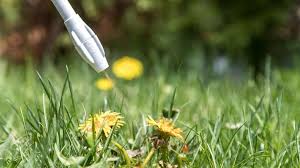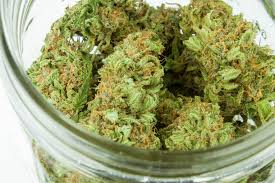Weed Killer For Lawns, Maintaining a lush, green lawn can be a challenge, especially when pesky weeds invade your outdoor space. Whether you’re dealing with dandelions, crabgrass, or clover, finding the right weed killer for lawns is essential to achieving a beautiful, weed-free yard. But with so many products available, how do you choose the best one? This guide will help you understand different types of weed killers, how they work, and what factors to consider before making your selection.
Types of Weed Killers for Lawns
- Selective Weed Killers
Selective weed killers are designed to target specific types of weeds without harming your grass. These are ideal for lawns because they focus on broadleaf weeds like dandelions and clover while leaving your turf intact. Most lawn-safe weed killers fall under this category. - Non-Selective Weed Killers
Non-selective weed killers, such as those containing glyphosate, kill all plants they come into contact with, including your grass. These are better suited for areas where you want to clear everything, like walkways, driveways, or preparing a new garden bed. They are not recommended for general lawn care. - Pre-Emergent Weed Killers
Pre-emergent weed killers prevent weeds from sprouting in the first place. These products create a barrier in the soil that stops weed seeds from germinating. They are most effective when applied early in the growing season, typically in spring, before weeds have a chance to take root. - Post-Emergent Weed Killers
Post-emergent weed killers target weeds that are already growing in your lawn. These are available in both selective and non-selective formulas, depending on your needs. They are typically applied after you notice weeds have started to appear.
Key Considerations When Choosing a Weed Killer for Lawns
- Grass Type
Different grass varieties have varying levels of tolerance to weed killers. For instance, some herbicides are safe for cool-season grasses like Kentucky bluegrass or fescue but may damage warm-season grasses like Bermuda or St. Augustine. Always check the label to ensure the product is compatible with your lawn type. - Type of Weeds
Knowing the types of weeds invading your lawn will help you choose the right product. Broadleaf weeds like dandelions and clover require different treatments than grassy weeds like crabgrass or sedges. If you’re unsure, consider a broad-spectrum selective weed killer that targets multiple weed types. - Application Method
Weed killers are available in various forms, including ready-to-use sprays, concentrates, and granular formulations. Ready-to-use sprays are convenient for spot treatment, while concentrates allow for customized mixing for larger areas. Granular formulations are often combined with fertilizers, offering a dual-action solution for lawn care. - Environmental Impact
Some weed killers contain harsh chemicals that may negatively affect the environment, including local water sources, wildlife, and beneficial insects like bees. If environmental impact is a concern, look for eco-friendly or organic weed killers that use natural ingredients to control weeds. - Timing of Application
The effectiveness of weed killers largely depends on when they are applied. Pre-emergent herbicides need to be used before weeds sprout, while post-emergent treatments work best when weeds are actively growing. Always follow the recommended application timing on the product label for the best results.
Top Weed Killers for Lawns in 2024
- Scotts Turf Builder Weed & Feed
This granular weed killer is popular for controlling broadleaf weeds while feeding your lawn. It’s designed for use on various grass types and is best applied in the spring or fall. - Ortho Weed B Gon
A selective weed killer, Ortho Weed B Gon targets over 250 types of weeds, including dandelions and clover, without harming your grass. The ready-to-use spray formula makes it easy to apply directly to problem areas. - Spectracide Weed Stop for Lawns
Another selective herbicide, Spectracide Weed Stop kills tough broadleaf weeds like chickweed and spurge while being safe for most lawns. Available in both spray and granular forms, it offers flexible application options. - Preen Lawn Crabgrass Control
This pre-emergent weed killer is highly effective against crabgrass and other grassy weeds. It’s best applied in early spring to prevent weeds from taking over your lawn. - Green Gobbler Vinegar Weed Killer
For those seeking an organic solution, Green Gobbler uses natural vinegar to kill weeds without synthetic chemicals. It’s a non-selective herbicide, so it’s best used for spot treatment or clearing areas without desirable grass.
Tips for Safe and Effective Use of Weed Killers
- Read the Label: Always follow the product instructions carefully to avoid damaging your lawn or nearby plants.
- Wear Protective Gear: Gloves, goggles, and long sleeves can protect you from accidental exposure to chemicals.
- Avoid Windy Days: Apply weed killers on calm days to prevent drift that can harm surrounding plants.
- Water After Application: Some weed killers require watering after application to activate the ingredients; check the label for specific instructions.
Conclusion
Finding the best weed killer for lawns involves understanding the specific needs of your lawn and the types of weeds you’re dealing with. Whether you choose a selective herbicide to target broadleaf weeds or a pre-emergent to prevent them from growing, the right product can help you maintain a healthy, weed-free lawn. Remember to consider factors such as grass type, environmental impact, and application timing to achieve the best results. With the right approach, your lawn can be the envy of the neighborhood.
You Might Also Like These:



